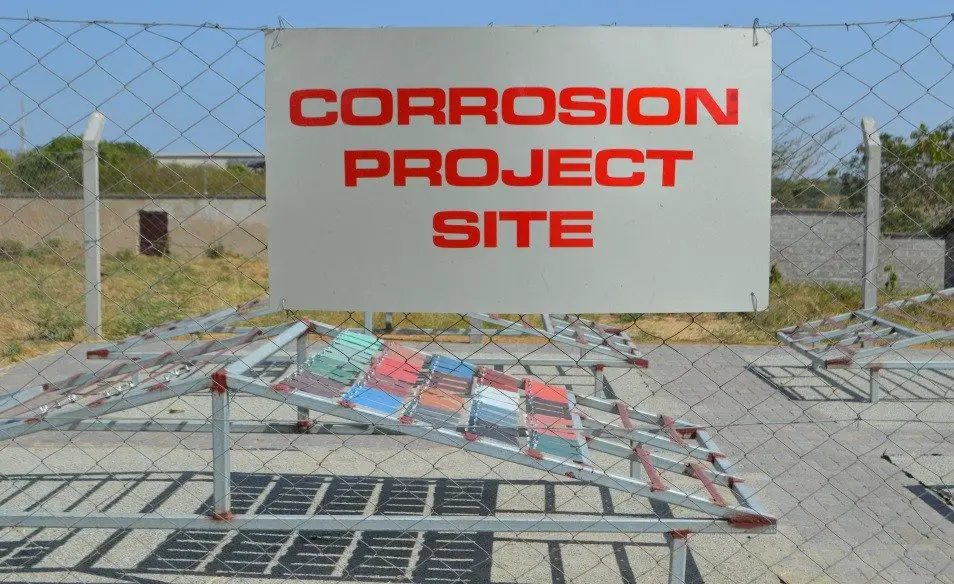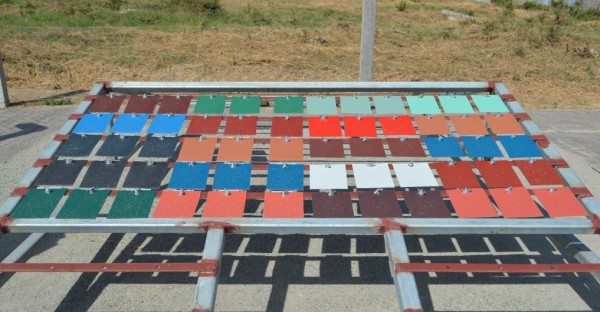Mabati Rolling Mills (MRM) has inaugurated a Kenya Corrosion Mapping Project at it’s Mariakani Factory site, near Mombasa in Kenya. The Project is a structured research program being carried out jointly with the University of Nairobi Department of Chemistry under Dr. John Onyatta. The objective of this Project is to provide live data to help identify the different climatic corrosion zones in Kenya. This type of data is currently lacking in Kenya and MRM has taken leadership, together with the University to bridge this gap.
For a long time, Professionals within the Built Industry have had to use what can at best be described as guesswork when it comes to roofing products specification and often this has led to products failing to meet client’s expectations especially within the harsh coastal zone. No scientific study has ever been conducted previously to guide professionals in matching different roofing products with the different climatic zones in the region. Materials specified for any project must take cognizance of the environmental conditions within which it’s being used if it is give the reliable service life expected from it.
The University has assigned a Graduate Consultant, Mr. Juspher Omondi, to the site and final touches are now being done to the Mariakani corrosion exposure site before being rolled out to another three sites in Kenya and one more in Dar es Salaam, Tanzania. In Kenya, other sites will be located at Mombasa, AthiRiver and Kisii. Each exposure site comprises a frame structure on which metallic coated and pre-painted steel samples both from MRM and other coil coaters, will be installed and monitored during their lifetime to determine their weathering performance and rate of corrosion in that particular zone.
According to Juspher, ‘The five (5) year Corrosion Project will take place in two phases. Firstly, pollution and salinity deposition rates for all five sites will be considered under natural weather conditions using data from local meteorological stations. Secondly, Cyclic Corrosion Tests (Laboratory tests) will be done using the average annual data to correlate the exact number of years over which each product sample will degrade. Following this, a scientific corrosion map will be originated similar to that currently available in some other countries.
The finding of the research will not only act as a selection reference for clients on the best product for applications within given locations, but will also provide working data to institutions and the international corrosion research centers worldwide facilitating capacity development of local experts for future service to the construction industry.


Leave a Reply